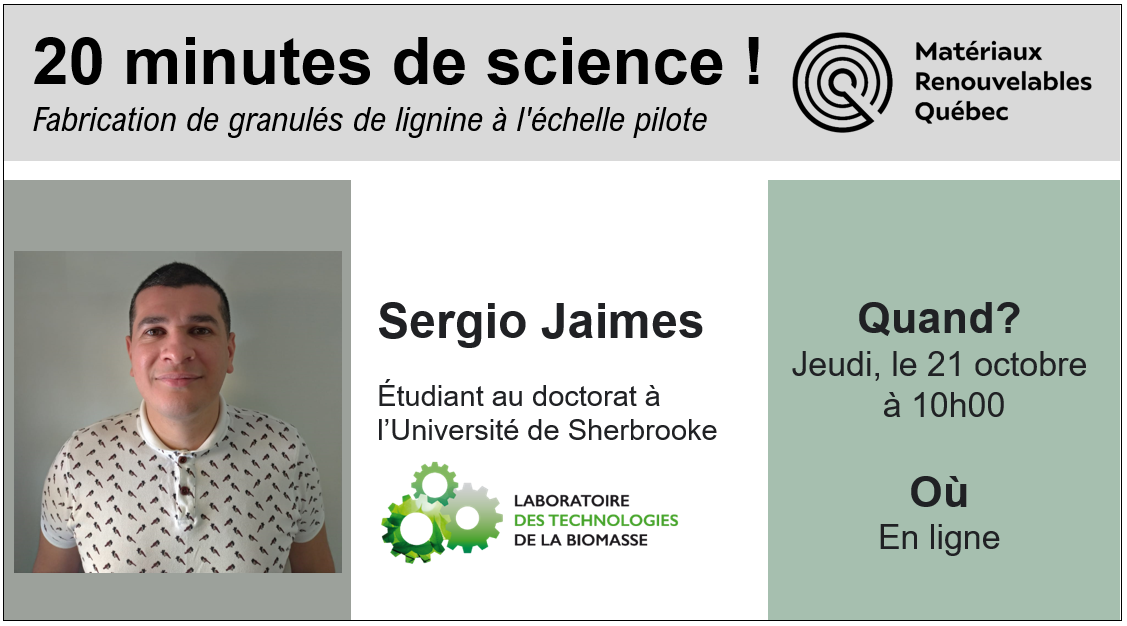MRQ Network – 20 minutes of science – Sergio Jaimes (BTL-UDeS)
Don’t miss Sergio Jaimes’ 20 minutes of science on Thursday, October 21, from 10-11am!

The presentation will be in French.
Sergio Jaimes Rueda is currently a PhD candidate in Chemical Engineering at the University of Sherbrooke and his research project focuses on the use of lignin from agricultural and forestry residues for the manufacture of pellets. He holds a master’s degree in mechanical engineering from the Universidade Federal do Pará in Brazil. He studied Electrical Engineering at the Universidad Pontificia Bolivariana in Colombia and Electromechanical Technology at the Unidades Tecnológicas de Santander in Colombia. Over the years, he has acquired professional and academic experience in some research areas such as energy conversion (wind and wave energy), liquid-gas two-phase flow in the oil and gas field, process control and optimization, industrial maintenance, etc.
Summary of his work
Due to the increasing demand for energy in the world, high potential energy sources are needed to replace fossil fuels, such as oil, coal and natural gas. An alternative form of energy with high energy potential is pellets (also known as granules). These can be considered renewable biofuels if they are produced from lignocellulosic biomass. Pellets have a low moisture content, a homogeneous shape and a high energy density, as they are derived from plant biomass.
Plant biomass is generally composed of three structural macromolecules: hemicellulose, cellulose and lignin. Lignin is embedded in the matrix of the other two macromolecules and is the second most abundant biopolymer in nature. Lignin can also be obtained from lignocellulosic tissues and residues which, in some cases, are abundantly available and present on a large scale in the world. Lignin has many applications, including the production of composite polymeric materials and monomer-based aromatic organic compounds. Finally, due to its high calorific value, this macromolecule can be used as an energy source. The production of pellets as an alternative energy source is therefore an interesting avenue for the production of solid fuels with high energy density for industrial heating.
Curious to know more?
Log on Thursday, October 21, at 9:55 a.m. at the following link: https://ulaval.zoom.us/j/62527330131?pwd=bUZKYjkrbzFQaXJsamw3YVlybGJZQT09
Meeting ID: 625 2733 0131
Secret Code: 960919
 The BTL offers a unique window in terms of research and development in the field of valorizing different sources of residual carbon, and now, also food industry related challenges. Discover our research fields, our services and our recruiting opportunities.
The BTL offers a unique window in terms of research and development in the field of valorizing different sources of residual carbon, and now, also food industry related challenges. Discover our research fields, our services and our recruiting opportunities.

